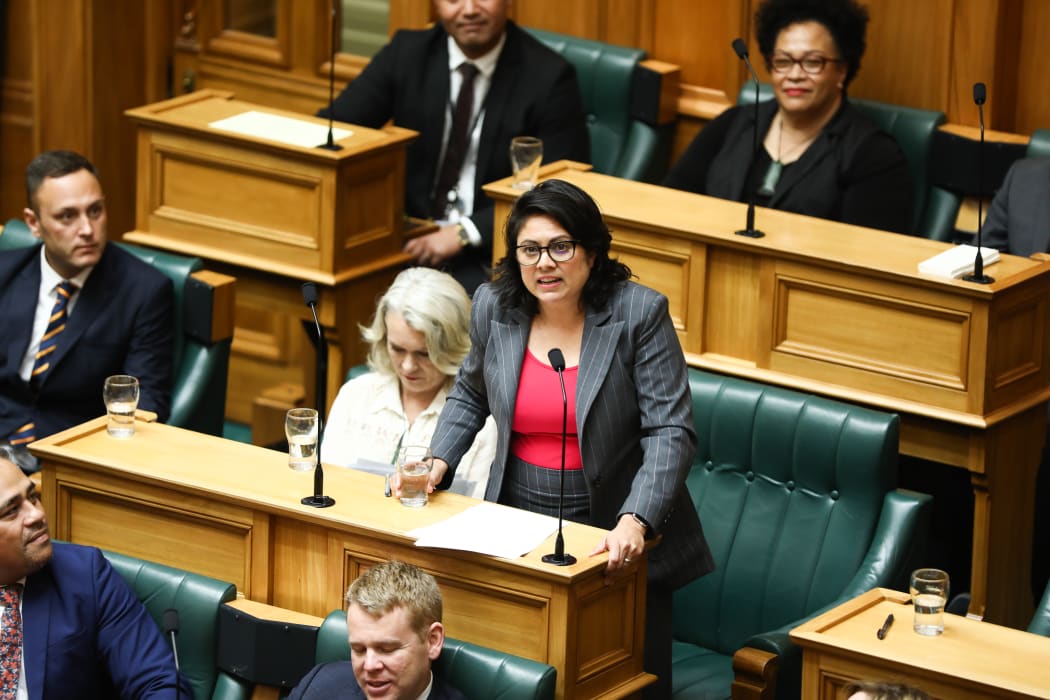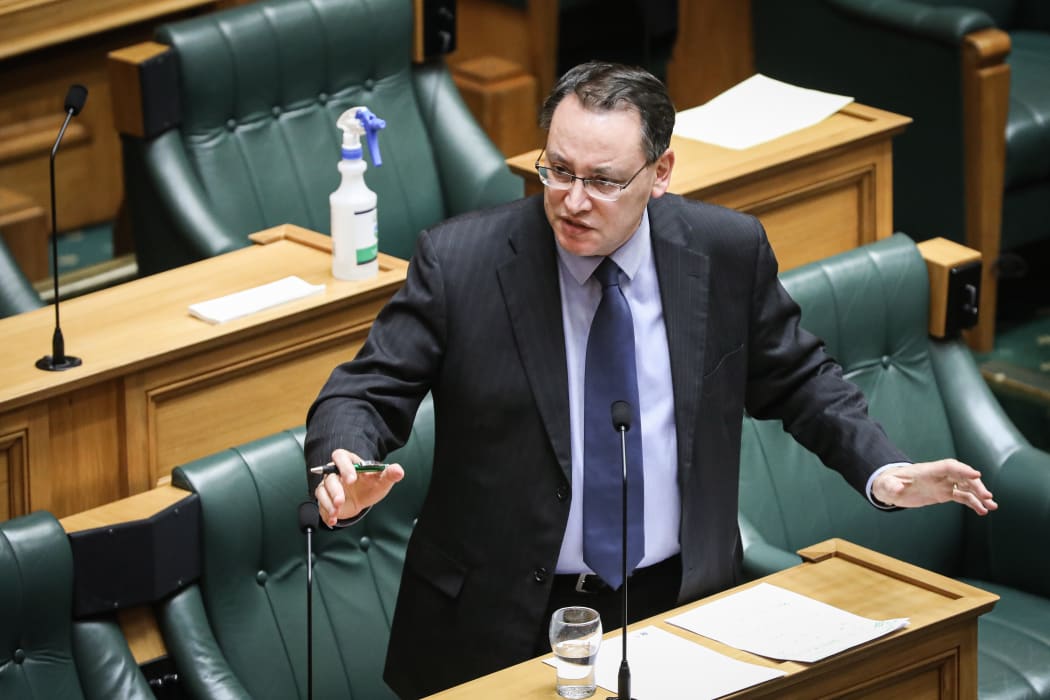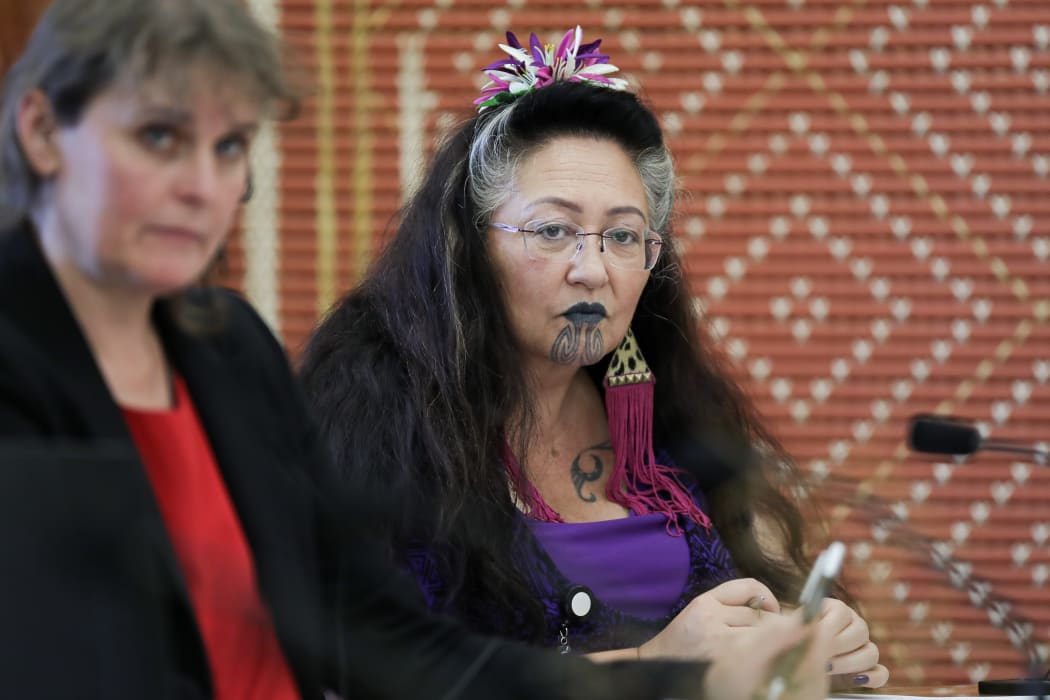A bill transferring decision-making powers of water fluoridation has passed its second reading at Parliament more than four years after it was first introduced.

Associate Minister of Health Ayesha Verrall Photo: VNP / Daniela Maoate-Cox
The Health (Fluoridation of Drinking Water) Amendment Bill was first introduced under a National-led Government in 2016.
The 2017 general election brought a change of government which couldn’t reach agreement on the bill so it sat on the list of things to do until now.
The bill proposes District Health Boards (DHBs) are given the power to decide whether water supplies should be fluoridated - the power currently sits with local authorities such as councils.
Labour MP and Associate Minister of Health Ayesha Verrall has taken over the bill and has put forward a proposal to transfer the power to the Director-General of Health instead of DHBs or local authorities.
She said it’s worth revisiting why the bill is needed.
"We know that New Zealanders don't access dental care enough, and dental care is preventive," she said.
"We know that the impacts of tooth decay are inequitable in New Zealand. Low-income adults will have lost 2.5 teeth on average by the time they are 38 due to tooth decay; whereas this is only 0.4 of a tooth for those on high incomes.
"These differences are impactful. Tooth decay combined with the cost of dental care causes painful conditions. Some people are prevented from working because of tooth decay. It contributes to unemployment and loss of confidence in people."
Dr Verrall said tooth decay is one of the leading causes of preventable hospital admissions with children younger than five being sent to hospital for dental extractions.
"Because they're so young, they cannot reliably be made to sit still for a dental extraction, and so they are placed under a general anesthetic for a preventable condition. It is a shame."
Fluoride prevents 40 percent of tooth decay across one's lifetime but political inaction has meant the coverage of water fluoridation in New Zealand has stayed at 50 percent for the last 15 years, said Dr Verrall.
The National Party's health spokesperson Shane Reti said his party accepts the science of fluoridation and many submissions made in 2017 opposing the bill were against the science rather than the process the bill proposes.
"[It] was a process that was requested by Local Government New Zealand fundamentally saying, "Look, we manage the municipal water supplies and the injection sides, and we're being asked to make a decision on what is a health matter, and we don't feel like we have the competence in the health domain, and yet it falls to us.", and that was a very reasonable argument to make."

National Party deputy leader and health spokesperson Shane Reti Photo: ©VNP / Phil Smith
A substantial change to the bill transferring water fluoridation powers to the Director-General of Health instead of DHBs has been attached by Dr Verrall in the form of a Supplementary Order Paper (SOP).
Dr Verrall has asked the Health Select committee to launch an inquiry itnto and ask for the public to submit their views.
"It is my intention to progress this bill to the committee stage in about two months' time, and the House would benefit from having the committee's report available so it can be considered at this stage."
- Make a submission on the SOP here by 18 June 2021
- Read Dr Verralls SOP here
- Read the 2017 report from the Health Select Committee
The bill has support of all parties in the House and passed its second reading with no opposition but MPs did voice some concerns they hoped would be addressed in the coming stages.
Dr Reti said back in 2017 it was reported by the select committee that DHBs would be best suited to decide whether water supplies should be fluoridated and a local view should still be considered in the decision-making process.
"Remembering it was a National bill that came to the House, first of all, proposing in response to Local Government New Zealand that the decision making around fluoridation move to DHBs—we agree that fluoridation should move from local authorities," he said.
"We understand the Supplementary Order Paper that is going back to select committee, requesting a move to central government. Our position will be that depending on what comes out of select committee, we'll be seeking an amendment to that Supplementary Order Paper to make sure that there is still a local voice in some shape or form."
The SOP says the Director-General must:
- take into account when considering whether the benefits of adding fluoride to the drinking water outweigh the financial costs: and
- take into account the state or likely state of the oral health of a population group or community where the local authority supply is situated.
Green MP Elizabeth Kerekere said her party supports the bill and the SOP but is concerned about the broad range of decision-making powers the Director-General of Health would be given and whether affected communities would be properly consulted.
"Appropriate decision-making is very important so that the people most affected should have a say in the issues that are affecting them. So we acknowledge the support of the dental and medical professions that the Minister mentioned, but we would really want to see that communities have a say in this."

Green MP Elizabeth Kerekere Photo: ©VNP / Phil Smith
Māori have the poorest oral health outcomes of any other population in Aotearoa but are at risk of not being included in the decision making process if the SOP and bill are passed as they currently are said Te Paati Māori co-leader Debbie Ngarewa-Packer.
"We agree that local councils aren't necessarily best placed to make these decisions, and we, of course, recognise the health reforms, which also preclude DHBs," she said.
"However, what we must maintain is the ability of tangata whenua local communities to engage with these decisions. Placing policy decisions in the hands of one Government bureaucrat runs completely against Te Tiriti o Waitangi and our decision-making rights as tangata whenua.
"Under the current proposals there will be no Treaty framework for fluoride decisions, and there'll be no opportunity for public consultation, let alone dedicated mana whenua engagement. Tangata whenua, and indeed all communities, have the right to decide what chemicals our wai supplies are treated with."
Ngarewa-Packer said te Paati Māori will put forward an amendment to the bill that will require the Māori Health Authority to agree before any fluoride decisions can be made and provide opportunities for the public, including local communities of whānau, hapū, and iwi Māori to submit on fluoride decisions.
Submissions on the inquiry into the SOP can be made online through Parliament's website and must be submitted to the Health Committee by 18 June 2021.


